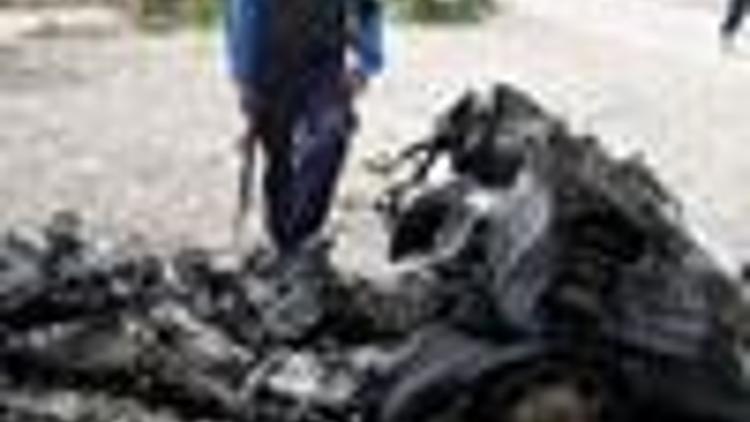U.S. blames Shi'ite group for Baghdad bomb
Güncelleme Tarihi:

U.S. forces blamed a rogue Shi'ite militia group seeking to stir up sectarian violence on Wednesday for a devastating truck bombing that killed 63 people in Baghdad. (UPDATED)
The U.S. military said intelligence information showed the attack on Tuesday in a predominantly Shi'ite district, the deadliest in the Iraqi capital in more than three months, was carried out by a "special groups cell".
That is military jargon for rogue elements of Shi'ite cleric Moqtada al-Sadr's Mehdi Army. The U.S. military says the special groups receive weapons, training and funding from neighbouring Iran, a charge Tehran denies.
Iraqi police said another 75 people were wounded in Tuesday's bombing in a crowded market area of northwestern Baghdad. Four children and five women were among the dead.
The blast in the al-Hurriya neighbourhood set three buildings ablaze and destroyed a marketplace, police said.
The U.S. military said it believed the bombers used a truck loaded with 200 to 300 lbs (90 to 135 kg) of explosives.
The attack, which came just weeks after the U.S. military announced violence in Iraq had dropped to a four-year low, shattered a period of relative calm in the Iraqi capital.
Trucks and diggers were busy on Wednesday removing rubble from the bomb site. Smoke hung in the air.
The marketplace was full of people, some still searching for missing relatives among the debris and garbage. Koranic verses were broadcast from loudspeakers in memory of the dead.
U.S. officials have blamed al Qaeda insurgents for scores of major bombings that have killed thousands of people in Iraq in the last few years, but U.S. forces said they did not believe the Sunni Arab insurgents were to blame for Tuesday's blast.
"Our intelligence, corroborated through multiple sources, is this atrocity was committed by a special groups cell," a U.S. military statement said.
INCITE SECTARIAN VIOLENCE
The military said it believed the attack was ordered to incite Shi'ite violence against Sunni Arabs and specifically to disrupt resettlement of Sunni Arabs in the al-Hurriya area.
Prime Minister Nuri al-Maliki blamed the attack on a suicide bomber and said the intent was to promote sectarian strife.
"This crime will not affect our will and our determination to defeat the terrorists and to maintain the security gains achieved by our security forces," he said in a statement.
The U.S. military said the group it blamed for the bombing was led by Haydar Mehdi Khadum, who it said was linked to a number of roadside bomb attacks against Iraqi and U.S. forces.
The commander of U.S. forces in Iraq, General David Petraeus, told the U.S. Congress in April that special groups, if unchecked, posed "the greatest long-term threat to the viability of a democratic Iraq."
Maliki, himself a Shi'ite, has been applying intense pressure on Sadr in recent months, sending Iraqi forces into his strongholds in the southern oil city of Basra and into the teeming Sadr City district of Baghdad.
Iraqi and U.S. forces have also cracked down on al Qaeda in the northern city of Mosul.
Iraqi forces moved deeper into the southern city of Amara on Wednesday in preparation for the latest crackdown Maliki has promised against Shi'ite militias.
Tuesday's attack was the worst in Baghdad since 68 people were killed in coordinated bombings in a packed shopping area in the capital in March.
Baghdad has been relatively quiet since a May 10 truce ended weeks of fighting between security forces and militiamen loyal to Sadr.
U.S. officials credit an American troop buildup ordered by President George W. Bush in early 2007, growing confidence among Iraq's security forces and ceasefires by various militias for the recent drop in violence in Iraq.
Photo: AFP

